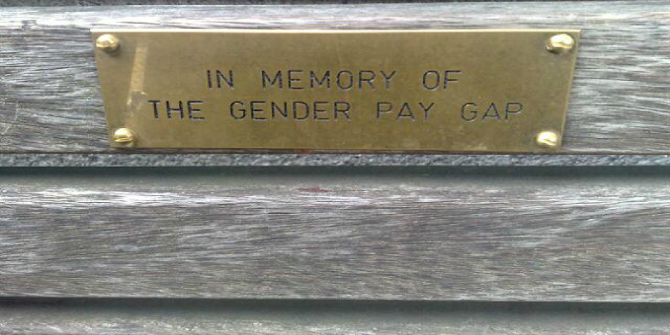 Neither the end of the Cold War nor the aftermath of 9/11 has led to the creation of a “next generation” of multilateral institutions. But what exactly is wrong with the United Nations, and how can we fix it? Is it possible to retrofit the world body? Thomas Weiss contends that substantial change in intergovernmental institutions is both plausible and possible. Natalie Beinisch finds Weiss’s account of the afflictions which cripple the UN is systematic, comprehensive and substantiated by detailed examples.
Neither the end of the Cold War nor the aftermath of 9/11 has led to the creation of a “next generation” of multilateral institutions. But what exactly is wrong with the United Nations, and how can we fix it? Is it possible to retrofit the world body? Thomas Weiss contends that substantial change in intergovernmental institutions is both plausible and possible. Natalie Beinisch finds Weiss’s account of the afflictions which cripple the UN is systematic, comprehensive and substantiated by detailed examples.

What’s Wrong with the United Nations and How to Fix It. Thomas G. Weiss. Polity Press. April 2012.
As the title suggests, Thomas Weiss, a seasoned United Nations specialist, examines his chronically ill patient and prescribes several treatments to nurse the ailing organisation back to health. He identifies four acute problems affecting the world body.
Firstly, Weiss recognizes that the United Nations too often manages international problems on the basis of state interests when the most urgent issues, so called problems “without passports”, require alternative forms of organisation. This is true in the sphere of human rights, where the principle of state sovereignty more often than not trumps principles of human welfare. Here the UN has failed to produce institutions which are capable of resisting capture by states. For example, Libya was elected to chair now defunct Commission on Human Rights in 2002. Its replacement, the Human Rights Council has not fared much better, with states such as China, Russia and Saudi Arabia elected to drive its agenda. Considering the UN is an organisation of states, such challenges are unsurprising. Weiss recognizes that recently the United Nations has tested other models of organisation; the Global Compact for example was designed to integrate corporations into the UN system. These efforts to widen participation have still not had an impact on areas of decision-making where problems such as the examples above of state capture are severe.
A second issue which cripples the UN is that there is an artificial division between states from the North and South. This division, originating in the Cold War, does not reflect a clear set of common interests in respect to either developed or developing nations and is used instead to paralyse discussions on issues such as reforms to the Security Council and defining terms of human rights, security and development. Zimbabwe has for example succeeded to protect itself from sanctions due to support from other African nations whose leaders have no collective interest in defending Mugabe’s appalling human rights track record apart from apartheid era political ties.
While the first two afflictions weakening the UN are to do with its membership structure, the second two are connected to its bureaucracy. To begin with there is no central authority which has the power to make decisions on organisational mandates and resource allocation so UN institutions often have overlapping goals and compete for patronage; Weiss equates this set-up to a feudal kingdom. Indeed, he points out that such an inefficient and politicised form of organisation has compromised the capacity of the UN to deliver on issues relating to Internally Displaced People (IDPs), human rights, women and the environment because those in charge of the relevant organisations are reluctant to give up their independence to coordinate.
Weiss compares the confusing bureaucracy of the UN to that of the military or of a centralised government; for all of the problem of these types of organisation, there are much clearer lines of accountability and centralised budgeting processes which makes resource allocation and coordination more efficient. The feudal nature of the UN establishment is further undermined because its budget for human resources is small and senior staff are less likely to be career professionals and more so for political appointments. This makes a long-term career in the UN unattractive to global talent and exposes the UN to decision-making which is based on special interests as opposed to the good of the organisation. Weiss points to the leadership of Amadou Mathar M’Bow of UNESCO and Edouard Saouma of FAO, both of whom mismanaged their organisations and exercised strong control over information as examples of how these appointments have been toxic for the UN. Furthermore, corruption as seen in the Oil-for-Food Programme and the low priority the UN has put on issues such as the advancement of women reinforces its image as an out of touch bureaucracy. This analysis resonates as an employee of an organisation that carries the UN ‘brand’ as the career expectations of potential employees, particularly young graduates are difficult to meet.
After offering a comprehensive diagnosis, Weiss goes on to suggest paths to convalescence. By his own admission, the course of treatments he offers are not always feasible. Some however are grounded in past examples. The evolution of the Responsibility to Protect (R2P) doctrine is an example of how new attitudes towards state legitimacy, namely that states are accountable to domestic and international constituencies for their human rights performance, have been achieved through consensus building in the UN framework. States have also been able to transcend North-South coalitions on issues such as landmines, which brought together like minded, but otherwise unaligned parties such as Canada, South Africa and Burkina Faso and on topics related to the empowerment of women and human security, which shift the focus of debates from the state to individuals. There are also cases in which the UN has set up centralised funds to respond to crises which have been more successful than other attempts to encourage coordination between UN departments. This includes the Global Environment Facility and the Central Emergency Response Fund. To improve the civil service Weiss suggests discipline for peace keepers, better representation of women, structured job rotations, more permanent contracts and the culture where ideas are fostered. Interestingly, this is an area where there are few examples of reform.
Weiss’s account of the afflictions which cripple the United Nations is systematic, comprehensive and substantiated by detailed examples. Should I ever fall seriously ill, I could hope for no better doctor to offer me a diagnosis. The organisation of his work also makes the book appealing for textbook reading. Nonetheless, where the volume falls short is on its recommendations. Weiss might do more to draw out why or why not the recommendations he gives could be implemented, particularly because he recognizes the challenges of doing so. His suggestions leaves the reader to conclude that a world organisation could work well in theory, but the sheer number of competing interests and coalitions make this a very difficult task to fulfil in practice. On the other hand, this is also a strength, as by asking what is wrong with the United Nations and how it is should be fixed, Weiss is asking a much more difficult question about the types of institutions which should be playing a role in global governance. The clarity and structure of his works means this book can benefit not only students of international organisation but practitioners inside of them as well.
——————————————————
Natalie Beinisch is a PhD Candidate at the London School of Economics and runs the Academic Network at the United Nations Principles for Responsible Investment. Her research area is transnational regulation. She is particularly interested in understanding how labour is regulated by systems of industry self-regulation and what influences their institutional design. Her dissertation focuses on two cases in the chocolate and toy industries. Natalie’s professional career has centred on talent development beginning with executive leadership at Duke Corporate Education and more recently to research oriented careers. She is currently based in London, having worked in Canada, Japan and Singapore. Read more reviews by Natalie.








Very nice description of the text. Had to read it for a class and you did a great job of compressing the text ideas into one article.